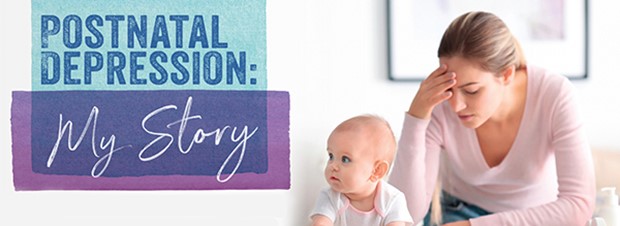Postnatal Depression: My Story

Guest post by Kate Stow
More than 10% of new mothers suffer from postnatal depression, and yet it is poorly understood by many of us. Even mums that are suffering might not realise they are experiencing something more than the ‘baby blues’. This is Kate’s story.
How could this be happening to me? I had worked with children since the age of 16, and my dream in life was to be a wife and mother. At the age of 30, I was recently married and pregnant soon after, so why did I feel like life was throwing me a rough deal? Why did no one understand how I was feeling?
From start to a much earlier finish than expected, I didn’t enjoy my pregnancy. I had a few hiccoughs during it along with work stresses, so I began maternity leave 12 weeks before my due date, and during my last week at work, my waters broke. I spent the night in hospital and, after an internal exploration, a doctor discovered I had a cord prolapse. Within 30 minutes, my daughter was born by emergency caesarean section.
I woke up from general anaesthetic and was told the baby was a girl. She weighed 2lb 14oz, and was being ventilated, but doing well. I was in a side room by myself on the antenatal ward with just one photo of our baby. I felt sorry for myself with stitches, drips and drains, and this was where the negative feelings took hold. That evening, I was taken in a wheelchair to see my baby in the SCBU. My husband pushed me up to the open incubator but, seeing her for the first time, I felt absolutely nothing. I pretended I was delighted to see her.
After six days in hospital, I was allowed home. I made myself visit the hospital every day to see our baby, even though I didn’t want to go. I tried talking to my husband and family, but they didn’t understand how I felt. After five weeks in hospital, my daughter was strong enough to come home but I wasn’t ready. How would I cope?
I hoped that when it came to the time our baby should have been born, 12 weeks later, I would have a wonderful bonding experience, but that didn’t happen, and after a phone call with my health visitor, I burst into tears. It was arranged that I would have a volunteer come to the house once per week for a couple of hours. The lady who visited was amazing; she would sit and listen to me, or help around the house, and she understood how I was feeling because she had also had postnatal depression. The sessions lasted for a couple of months, and they helped so much. There were still tears, but I could eventually see the light at the end of the tunnel. It took about nine months before I began to enjoy seeing my baby’s progress.
After four years, I was ready to try for another baby. He was only three weeks early, and I had two days of the ‘Baby Blues’. My family was complete.
If you think you may be suffering from postnatal depression, it’s important to tell your midwife, health visitor or doctor how you feel. They won’t judge you – they understand that depression is a mental health condition and can help you to get the right treatment and support.
Kate Stow is a freelance Early Years Consultant for Educators, Parents and Childminders, who advises and supports the learning and development of young children. For more details please visit www.nurture-every-step.co.uk